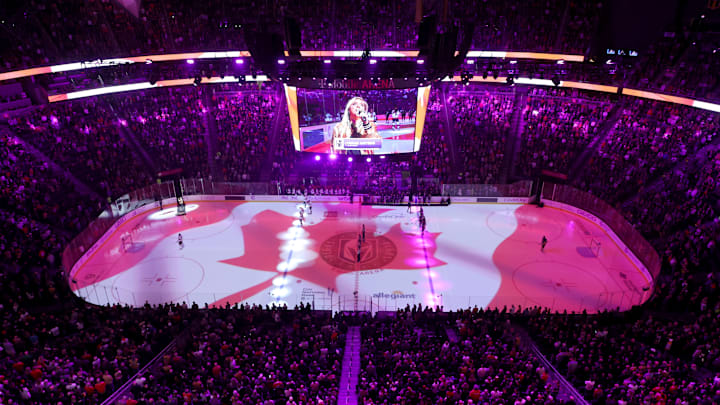Hockey is a game that goes back centuries with many iterations and developments, with some writings dating it back to 1500s Europe as a stick and ball game. However, the addition of ice to the game didn't come until very much later. The traditional game as we know it was developed in Montreal, Quebec in the late 19th century.
The first organized hockey game was believed to have happened on March 3, 1875, when two teams met in the Victoria Skating Rink in Montreal.
Thirty-five years later, the National Hockey Association created more defined rules for the most beautiful game on ice. They decided some rules that still exist to this day, more than 100 years later. That includes introducing minor and major penalties, salary caps, and a major change in period structure.
How many periods are in a hockey game?
See, prior to this, hockey, like many other sports, cut the game in half. There was a first half and a second half. Both lasted 30 minutes with a halftime or intermission in the middle.
Then, in 1910, hockey made its most integral change that not only made it unique but also found the perfect timing for game flow. Three periods, 20 minutes each became the standard for ice hockey.
NHL overtime explained
In 1920, the NHL introduced a new concept to avoid ties; overtime. The 20-minute session would create an extra opportunity to find a winner. That lasted until 1927 when overtime was scaled back to 10 minutes. That's also the year of the first playoff overtime goal, thought of by many as the most exciting singular play in sports. Walkoff home runs, soccer goals, buzzer beaters, and kickoff returns for touchdowns are great, but nothing quite touches an overtime goal in the playoffs.
Not only did Howie Morentz score the first overtime playoff goal, but his goal sent the Montreal Maroons home empty-handed and the Montreal Canadiens to the Championship Final.
Overtime progressed until 1942 when overtime was discontinued completely. World War II had taken a considerable amount of eligible players, and changes needed to be made to keep the game going. OT was still a playoff possibility, but it was no longer needed in the regular season.
That rule surprisingly stayed in place for almost four decades. In 1983, the NHL added five-minute sudden-death overtime to the regular season, which came just in time for the high-scoring 80s.
Of course, hockey is famous for its limitless overtime sequence. A winner must happen, no matter how long it takes. The longest game in NHL history came in 1936 when the Detroit Red Wings and Montreal Maroons played six overtimes. It finally ended in the 16th minute of the sixth overtime. The game almost had three full hours of gameplay without a goal being scored. One other game (1933 Maple Leafs-Bruins) went six overtimes, but five seems to be the recent standard. It last happened in a game between the Tampa Bay Lightning and Columbus Blue Jackets.
Today, things look a little different. Overtime is played for the same five minutes, but it's 3v3 with each team putting out a stunted lineup of stars only. Then, if they can't find a winner, the NHL has turned its back on regular season ties and called for a shootout. The shootout has been around since the end of the 2004-05 lockout, with varied excitement. Now, it's a routine part of the regular season.
So, there you have it. The simple answer to "how many periods are in an NHL game" is three, but that's only if we have a winner. Things get very complicated now and in NHL history when the game is tied after regulation.
